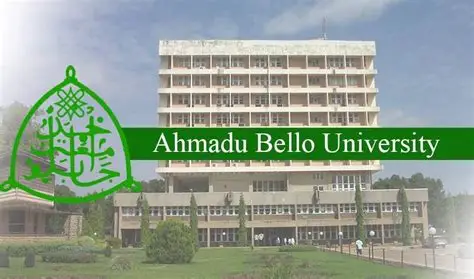The management of Ahmadu Bello University (ABU), Zaria, says it spends nearly ₦4 billion annually on electricity bills — a cost the Vice Chancellor, Professor Adamu Ahmed, has described as “crippling and unsustainable.”
Speaking at a press conference in his office to mark the university’s 63rd anniversary, Professor Ahmed said the huge energy bill has continued to hamper academic activities and research.
He explained that to cushion the burden, the university has embarked on a journey toward energy self-reliance, encouraging staff and students to innovate while seeking partnerships for sustainable power solutions.
According to him, the Federal Government has acknowledged the crisis, providing an initial ₦1 billion intervention through TETFund last year and approving another project to deliver 10 megawatts of renewable energy to the institution.
“We’ve also reached out to our alumni, particularly the SBS class of 1975, who are already implementing a solar-powered project for one of our CBT centres,” Ahmed said. “We’re taking our destiny into our own hands while expecting continued support from outside.”
READ ALSO: Blackout Looms As GenCos Threaten Shutdown Over N4tn Electricity Debt
Professor Ahmed reaffirmed that ABU was founded to serve as a bridge of unity and progress for Nigeria, recalling that the late Premier, Sir Ahmadu Bello, envisioned a university where Northerners and Southerners could study together without ethnic or religious barriers.
He lamented that insecurity and poverty had continued to undermine development in Northern Nigeria, disrupting education and human capital growth. According to him, ABU would now focus more on research, agriculture, and policy advocacy to address these challenges.
Highlighting the university’s vast agricultural assets — including the Institute for Agricultural Research (IAR), the National Animal Production Research Institute (NAPRI), and the Faculty of Veterinary Medicine — the Vice Chancellor said no other university in West Africa possesses such capacity to drive agricultural transformation and economic recovery.
Ahmed also emphasized that insecurity cannot be addressed by force alone. He called for non-kinetic approaches such as dialogue, understanding, and community-led peacebuilding. “We have the capacity, the research, and the networks,” he said. “And we are ready to lead the charge in finding lasting solutions.”
Reflecting on ABU’s growth, the Vice Chancellor noted that from its humble beginning in 1962 with four faculties, 15 departments, and 426 students, the institution has expanded to 18 faculties, 110 departments, seven institutes, four colleges, and 17 research centres—making it the largest university system in sub-Saharan Africa.
He added that ABU has earned global recognition, being ranked the best public university in Nigeria by Times Higher Education in 2025. It also received the JAMB Award for Internationalization and Diversity and remains one of only three Nigerian universities listed in the QS 2025 World University Rankings.
READ ALSO: How Masquerades Lead Protest Against High Electricity Bill In Kwara
According to Ahmed, the university has also secured three World Bank Centres of Excellence grants worth over $15 million, and a €5 million Horizon grant for an artificial intelligence project developing microscopes to improve the diagnosis of neglected parasitic diseases.
He revealed that ABU staff and students have registered over 30 patents locally and internationally across renewable energy, pharmaceuticals, and crude oil refining technologies — feats that underscore the university’s global research relevance.
Despite these achievements, the Vice Chancellor expressed concern over persistent funding constraints, brain drain, and infrastructural decay threatening long-term sustainability. He assured that the university would invest more in digital learning, research commercialization, and start-up incubation to promote self-reliance.
Professor Ahmed called on ABU’s extensive alumni network — which he described as “the university’s greatest strength” — to emulate the founding spirit of service by supporting their alma mater through endowments, annual giving, and donations.
“I call on our alumni to step up,” he said. “The Sardauna gave you opportunity; now it is time to give back. You have the resources, the talent, and the strategic positions to secure the future of this great university for generations to come.”
